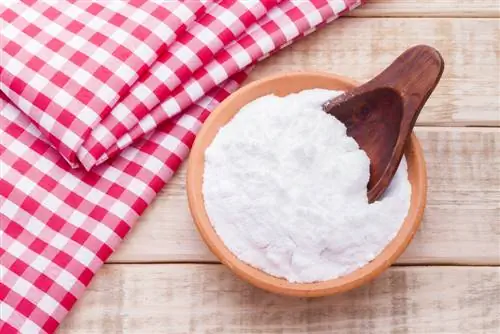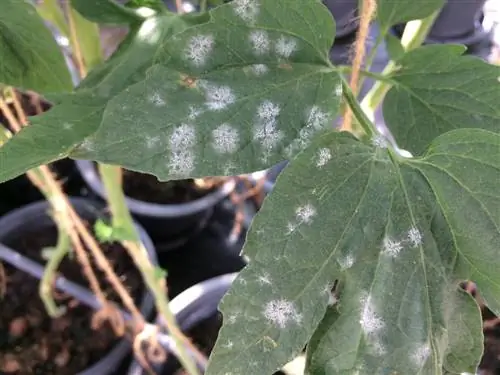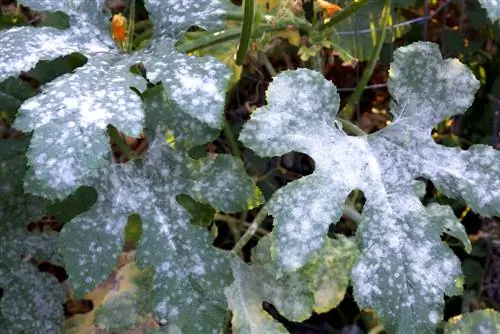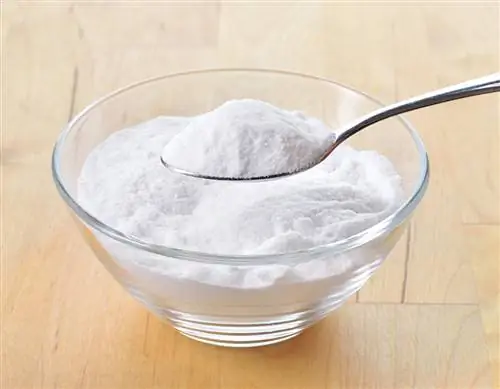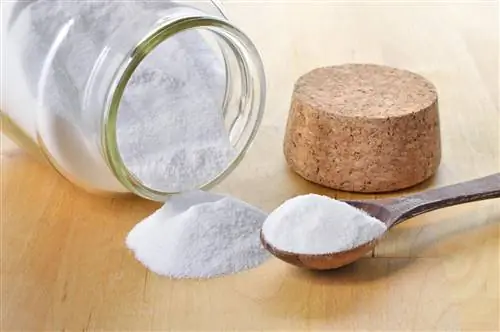- Author admin leonars@hobbygardeners.com.
- Public 2023-12-16 16:46.
- Last modified 2025-01-23 11:21.
Dirty coating on the leaves? That doesn't have to be the case! Give your roses or vegetable plants an efficient and gentle cleaning with a specially prepared baking soda water solution. The miracle cure baking soda not only proves to be particularly effective in the home, but also helps gardeners to make beds pest-free. The best thing is that baking soda does not harm the environment in any way. In this article you will learn how to make the effective remedy yourself with just a few ingredients.
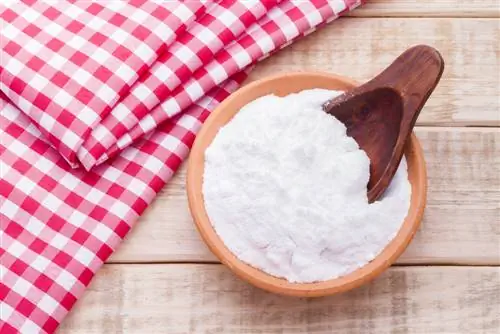
How can I treat mildew with baking soda?
To combat mildew with baking soda, simply dissolve two teaspoons of baking soda in a liter of water, pour it into a spray bottle and spray infected plants with it every ten days. Baking soda creates a slightly alkaline film on the leaves that kills the fungal infestation.
Mix baking soda mixture
- mix two teaspoons of baking soda (for example in the form of baking powder) with one liter of water
- fill into a spray bottle
- Spray infected plants with the solution every ten days
Special treatment for vegetable plants
To treat fruits and vegetables, you need to add a few more ingredients to the baking soda water solution:
- a teaspoon of baking soda
- one liter of water
- a teaspoon of Rimulgan (€16.00 at Amazon) (serves as an emulsifier)
- and a tablespoon of neem oil
How it works
Mildew is caused by an apparent fungus that, depending on the species, specializes in one type of plant. It primarily attacks roses, cucumber plants, grape vines and apple trees. The reason: the fungus doesn't like acid. However, the baking soda creates a slightly alkaline film on the leaves, which kills the infestation. With regular use, there is a high probability that the pest will not appear again. Therefore, you can also use the baking soda-water mixture as a preventative measure. To do this, wipe off the mildew thoroughly and spray the leaves from time to time. Since these are purely natural substances, there is no danger to the environment. Even animals can innocently eat the sprayed leaves. Since it is primarily the acid that drives away mildew, dairy products such as buttermilk, which contain lactic acid bacteria, are also suitable for treatment.

